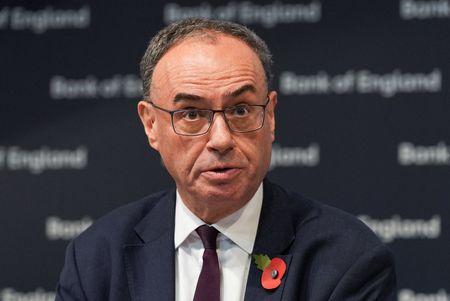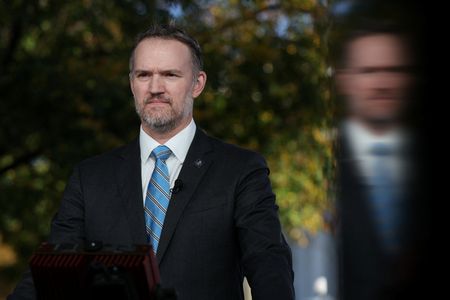BRUSSELS (Reuters) -The European Commission on Thursday opened an antitrust investigation into Deutsche Boerse and Nasdaq for alleged anti-competitive behaviour, which the stock exchange groups said related to a derivatives deal from 1999.
Deutsche Boerse shares fell as much as 7.3%, before paring some losses. At 1245 GMT, they were down around 4%.
The Commission said it suspected the companies of breaking EU competition rules for listing, trading and clearing of financial derivatives, contracts whose value changes depending on the price of underlying assets.
“Deutsche Boerse and Nasdaq entities may have entered into agreements or concerted practices not to compete in the European Economic Area,” it said. “In addition, the entities may have allocated demand, coordinated prices and exchanged commercially sensitive information.”
COMPANIES COOPERATING WITH THE INVESTIGATION
The two companies said in separate statements that the probe referred to a 1999 deal between Deutsche Boerse’s derivatives arm Eurex and the Helsinki Stock Exchange, which was acquired by Nasdaq in 2008, for the Nordic derivatives markets.
“The cooperation was intended to be pro-competitive,” Deutsche Boerse said.
“In particular, it aimed to build deeper liquidity in the respective Nordic derivatives markets and create efficiencies. It provided clear benefits for market participants and was public.”
Nasdaq said the deal had been discussed with the Commission then, and did not encounter any objections until after its end.
“The cooperation delivered clear benefits for market participants,” it said.
Both companies said they took note of the decision to open an investigation and would work with the Commission.
“Together with our external legal advisor, we believe that we can successfully defend this case,” Deutsche Boerse said in an emailed statement.
A spokesperson for Nasdaq in Finland did not reply to a request for comment.
The Commission said the probe followed unannounced inspections it made at the two companies in September 2024. It will now conduct an in-depth investigation “as a matter of priority”.
(Reporting by Bart Meijer in Amsterdam, Inti Landauro in Brussels, Alessandro Parodi in Paris, Manya Saini in Bangalore, Tom Sims in Frankfurt and Stine Jacobsen in Copenhagen. Editing by Louise Heavens and Mark Potter)










